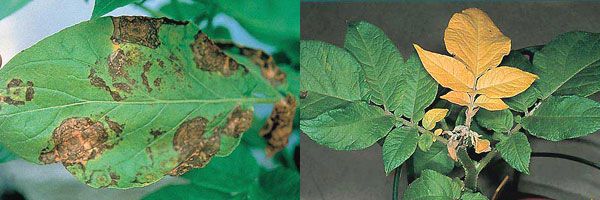
Tomato spotted wilt virus
(TSWV)
- Causal agent and transmission
TSWV is a virus transmitted by insects (thrips, including the western flower thrips Frankliniellia occidentalis, but also Thrips palmi, Thrips tabaci, etc.) in a persistent manner.
TSWV occurs worldwide because of its wide plant host range and the worldwide distribution of its vectors, different species of thrips.
More than 800 different plant species, from over 70 botanical families, including both monocotyledonous and dicotyledonous plants, have been reported to be susceptible to TSWV.
The virus causes significant yield losses in a large number of economically important crops e.g. groundnut, lettuce, papaya, pea, potato, sweet pepper, tobacco, tomato and in many ornamental crops, including alstroemeria, begonia, chrysanthemum, cyclamen, dahlia, gerbera and impatiens. Many weeds can be a virus reservoir.
- Significance
Outbreaks in potatoes are sporadic and related to the spread of vectors from other infected crops.
In such cases, infected plants may have quite a low yield and produce necrotic or rotted tubers.





